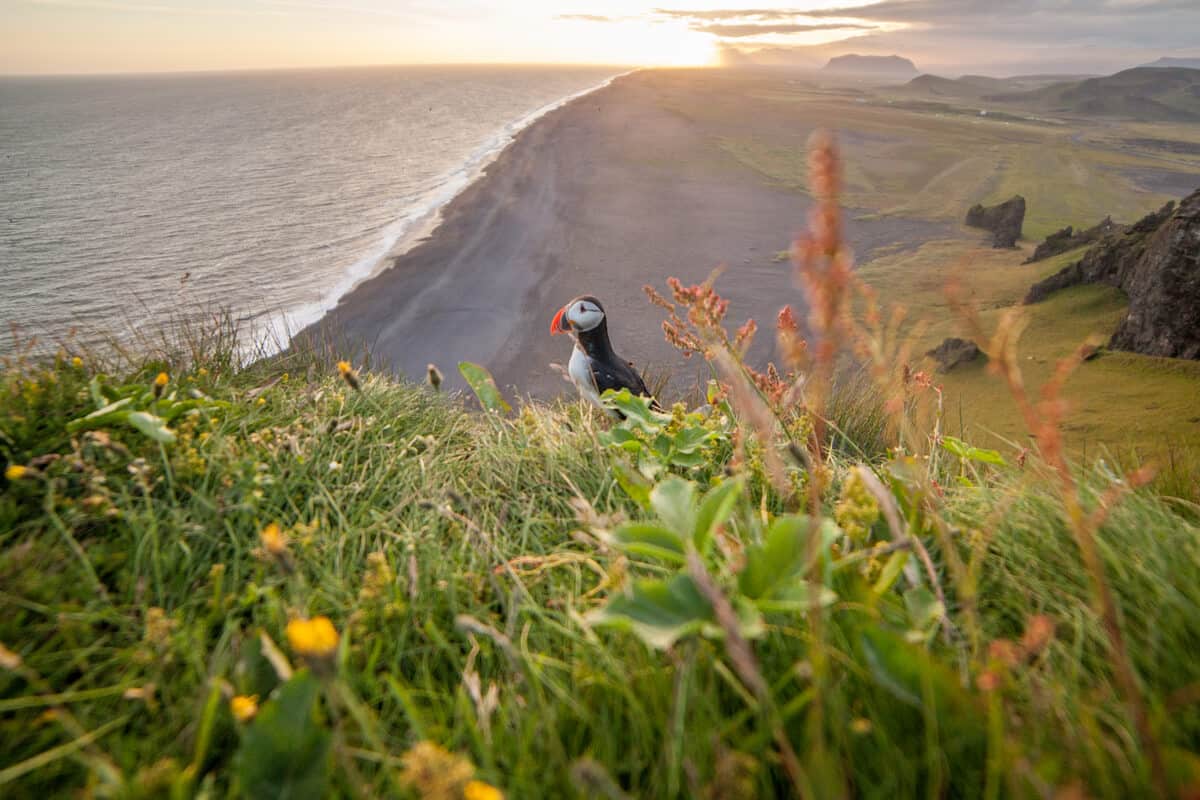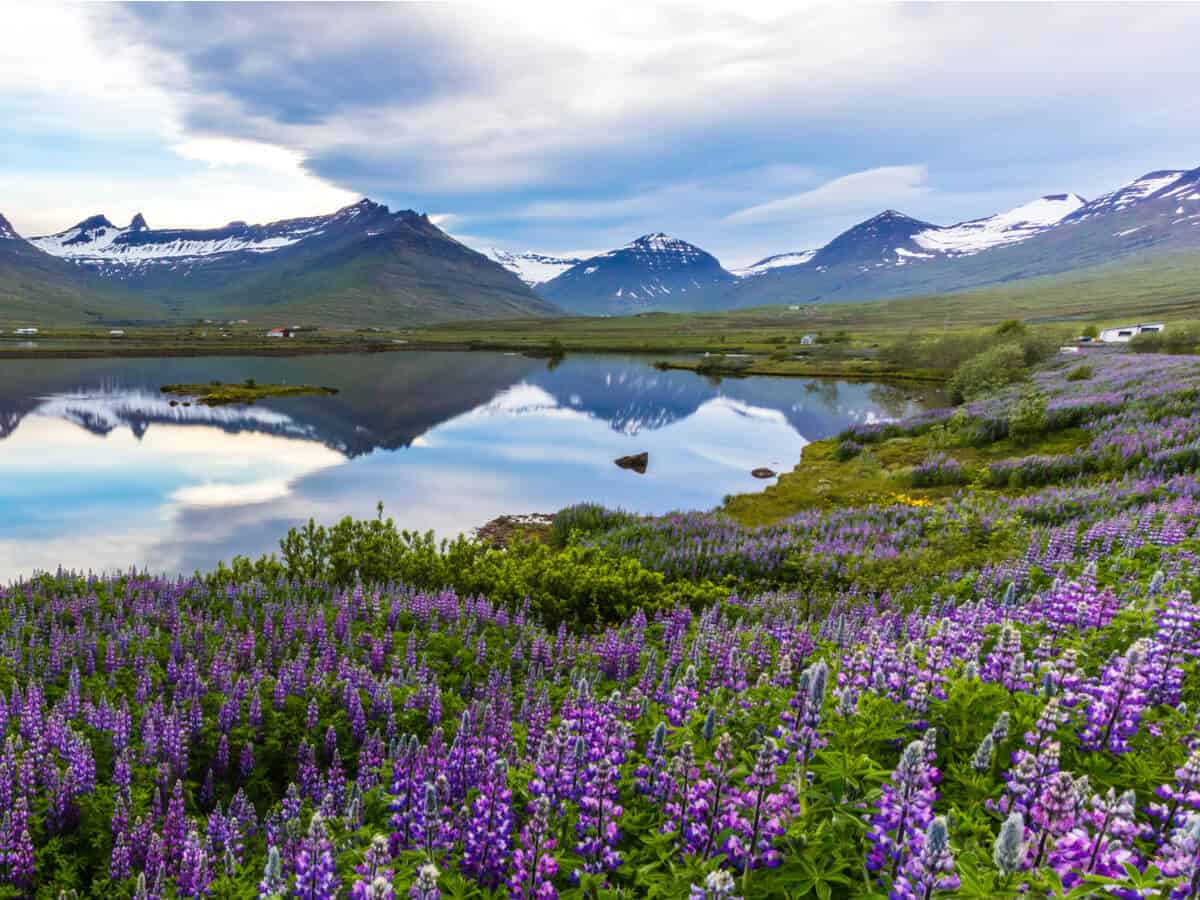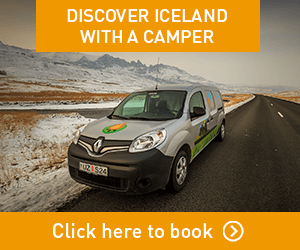Iceland has become a very popular destination among tourists worldwide. They’ve been captivated by its many natural attractions such as geysers, volcanoes and over 10,000 waterfalls. Iceland tourism has especially grown quite rapidly over the past few years. But it was not until approximately 2012-2013 that this so-called “tourism boom” arrived on our shores. Iceland is a very small island, but due to the large number of visitors every year, it can feel a bit crowded at times. We always hope most tourists who come are respectful about the environment and our culture. You may have heard about sustainable tourism in Iceland before, but what does that really mean? What can we do to help preserve these unique landscapes? We’re going to give you useful tips so you can have a great trip to Iceland while keeping sustainability in mind.

Always Buy Local to Be Local
This may sound like a classic cliché but it’s actually a really important habit that benefits our country directly. When you purchase Iceland souvenirs, choose locally-made, authentic goods. If you book a tour or other service, do it with a local company or guide. When looking at accommodation, choose guesthouses over Airbnb’s. This is the best way to become involved in the community. It will not only have a great impact on your own Icelandic experience, but you’ll be helping us grow.
Forget About Plastic
Here in Iceland, you will find fresh water directly from the tap. Imagine drinking fresh spring water for free. Yes, this is possible here. Don’t worry about water pollution as its almost nonexistent in Iceland. Whenever you find a faucet, know that it is clean drinking water. There is no need to stop to buy several liters of bottled water during your trip. Simply bring your reusable water bottle for your Icelandic adventure and you will be all set. If you do buy plastic, please recycle as much as you can.
Help Preserve Nature Wherever You Go
You will find a great number of incredible attractions in Iceland that will surely make you discover your adventurous side. This may be a fun way to enjoy your holidays, but remember to be conscious of where you step or sit. Always follow the footpaths in national parks, close to waterfalls, and more. Know that the island’s environment is really diverse yet so fragile. Our Icelandic moss, in particular, is quite vulnerable. Plus, if you are not careful, you may slip or fall if you are not wary of the possible risks out there. And please do not litter! You will find many trash cans in most tourist hotspots. If that is not the case, simply carry your litter with you until you locate a place to dispose of it.

Wild Camping is Not Allowed in Iceland
If you are planning on renting a car, camper, or motorhome for your trip to Iceland, here are some things you need to know first. As discussed before, the number of tourists coming into Iceland is incredibly high. Due to this, authorities have completely banned “wild camping or free camping”. In the past, you could pull over anywhere to stop overnight on the side of the road. Now, you must stay at designated places such as a guest house, hotel or campsite in the area. You can safely park your vehicle and get a good night’s sleep. There are many options to choose from. Take a look at this website for more details about campsites in Iceland http://tjalda.is/en/camping-sites/
Please Don’t Eat Endangered Species
This may be a rather controversial topic as it involves ethics, morality, and personal choices. But if you wish to respect the wishes of Icelanders and help protect the fauna of our beautiful country, please avoid eating whale, puffin, Icelandic horse, etc. I understand that it may be up to each and every one of us decide what we eat. You might even think it’s harmless if you do it just once. But what if Iceland’s annual 2.2 million visitors thought the same thing and made an exception? It seems today that as tourism is growing, so has the demand for these animals at local restaurants in the country. Locals don’t really eat these foods.
You may think that it may be a once of a lifetime opportunity to try these rare dishes and of course, we can’t stop you. Our recommendation is to take the time to assess the impact this will have on wildlife preservation efforts. If we all contributed to this cause by not eating these animals and reducing the demand, maybe the hunting of these innocent, beautiful creatures will stop someday.

Plan Your Visit to Iceland During the Off Season
There are some very useful ways to avoid encountering massive crowds in the streets during your stay in Iceland. Try to book your flight away from busy months such as summer season in general (July to early September). This way you will have less impact on the island and you will benefit from the lower price on everything and more availability to book for tours, car rentals, hotels, etc. And make sure to visit less populated areas as you will discover the magic of those enigmatic small towns and quaint villages surrounded by its unique nature.
Choose Sustainable Tourism Activities
You’ll find so many activities in Iceland that are promoted as environmentally friendly. Let’s begin with hiking, which is highly recommended while in Iceland as there are many trails in the country to explore. This is also a good way to stay healthy during your trip as you will enjoy the amazing views, combined with the natural fresh mountain air. If you are thinking of a great place to start, why not try the iconic Laugavegur Trail (it’s around a 6-day hike). The colorful rocks in the area and varied terrain are simply breathtaking. If you feel like a less strenuous option, I would suggest renting a bike in Iceland as it’s a nice way to unwind while exploring the country. There are a few kilometers of bike lanes in the largest cities but my suggestion is to rent a bike while visiting remote areas. This way you will enjoy a peaceful ride with stunning views.
Sustainable Tourism in Iceland
I hope that you have found this information useful in preparation for your trip. There are some actions concerning the impacts made to the country’s nature and the community that must be addressed by the local authorities. Nevertheless, every small contribution will make a world of a difference in the future. Always remember that what you do matters, not only here but everywhere you go.




